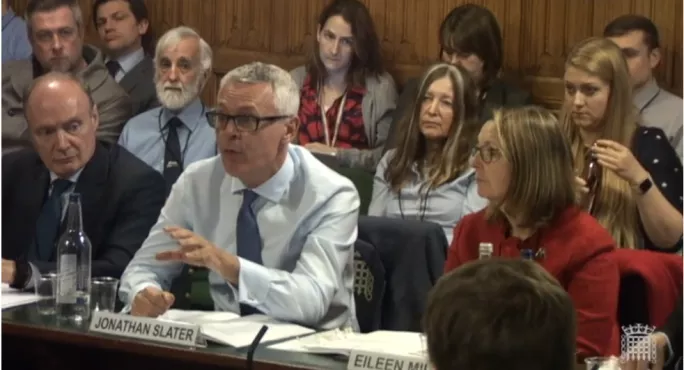The permanent secretary for the Department for Education has said that choices will need to be made on whether certain kinds of apprenticeships need to be prioritised unless funding is increased in the Spending Review.
Speaking in front of Parliament’s Public Accounts Committee, Jonathan Slater said that, while there had been a significant underspend in 2017-18 and something similar was expected in 2018-19, this was likely not to be the case in 2019-20. Indeed, on the basis of current trends, there could instead be a “significant overspend” in 2021 – something that had to be a consideration in the upcoming Spending Review.
Read more: DfE unlikely to meet apprenticeship target, says NAO
More news: Apprenticeship starts up 13% this academic year
Opinion: 'Managers are no use without skilled workers'
'Not enough to go round'
Asked if he supported the increase in the number of management apprenticeships, Mr Slater said that, while there was sufficient funding for all kinds of apprenticeships, there were no concerns over companies using their levy funding to train their managers as long as that was done properly.
However, he said that, as the National Audit Office’s recent report on apprenticeships had identified, “we are shortly going to be constrained for the first time", adding: "There shortly isn’t going to be enough to go round for everything, and something has got to give.”
He continued: “One of the choices for government as resources get constrained would be to prioritise some apprenticeships over others…The problem is that we are putting ourselves in the employers' shoes. But that sort of choice will have to be made, one way or the other.”
Levy underspend
Mr Slater said that the underspend on the levy in 2017-18 had been expected – although it at about £400 million, it was higher than the predicted £330 million. A similar underspend was expected for 2018-19, but “we expect all of that gap to be closed in 2019-20”.
He said it was expected large businesses would not use all their levy funds, which meant that money could then be given to small and medium-sized enterprises (SMEs). However, they were now using more of their money, leaving less money for SMEs and “choices to be made”
“That is the tricky balancing act and why for 2020-21, we will have to make some choices," Mr Slater said. "The Spending Review will have to ask the question as to the balance between different sorts of apprenticeships and the total money spent.”
Choices to be made
Mr Slater said the government had three options: “One could change the levy, one could, on the basis of productivity gains, fund some of it from general taxation, or one could prioritise from within”. However, “if the amount of money were to be constrained at its current level, that wold require choices to be made”, he explained – and that could include a decision to be made in terms of prioritising between level 6 and level 2 apprenticeships, for example.
The NAO's report, published earlier this month, says the take-up of levy funds has been below what the DfE expected, and in 2017-18, levy-paying employers used only 9 per cent of the funds available to them to support new apprenticeships – around £170 million of the almost £2.2 billion available.
However, if demand picked up and employers continued their preference for higher-cost apprenticeships, the DfE could overspend against its budget in the future. “Spending is demand-led, driven by employers’ decisions about how many and what types of apprenticeships they want. There is a clear risk that the budget may be insufficient should demand pick up in the way that would be needed for the programme to meet its objectives.”
'Sufficiently promptly'
In that case, the “government would then need to choose between providing more funding, inhibiting growth in apprenticeships or reducing the level of public funding for some apprenticeships”, Mr Slater added.
In today’s PAC session, Mr Slater also said he was "concerned" about drop in starts from disadvantaged young people” – some of it associated with the drop in level 2 starts.
Speaking about the Spending Review, he explained it was expected that if the government “got through the Brexit processes promptly and successfully, there would be a three-year spending plan, and if that was not the case, there would be a one-year plan”. The DfE was now looking at both options, but if required the one-year plan would be delivered “sufficiently promptly”, to allow FE institutions to plan ahead, Mr Slater added.





